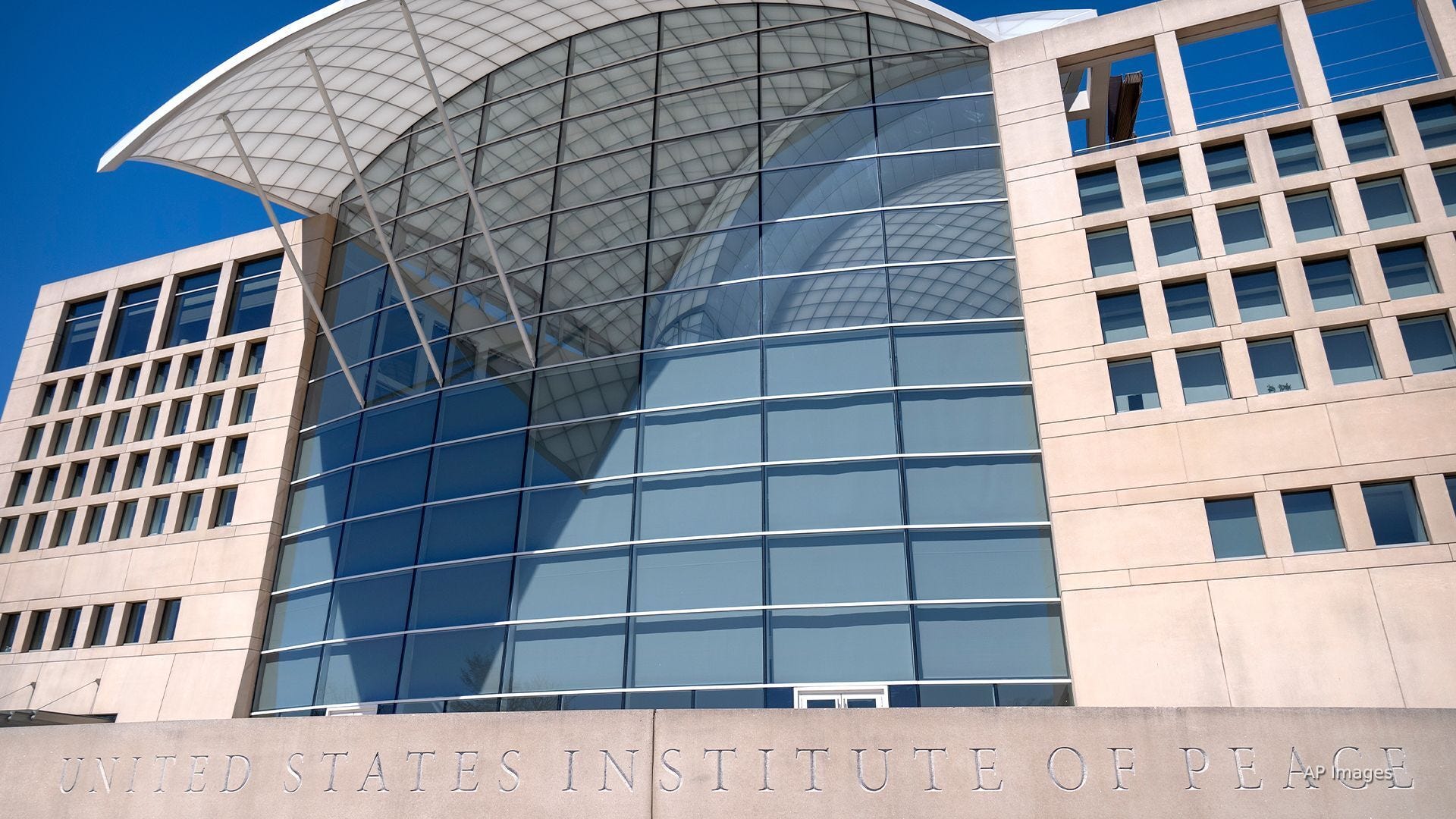DOGE fired me as it tries to destroy Institute of Peace, but our mission will live | Opinion
From addressing legacies of old conflicts like the Vietnam War – which ended 50 years go – to preventing future wars that threaten America's safety, USIP's vital efforts are in our national interest.

At the start of the American republic, President George Washington proposed to establish two national academies, one to teach war and one to spread peace. The war academy was approved by Congress and became the U.S. Military Academy at West Point. The “peace establishment” did not come into being until 1984, with President Ronald Reagan’s signing of the U.S. Institute of Peace (USIP) Act.
The institute’s founders were members of Congress from both parties, largely veterans of World War II, Korea and Vietnam, who in their wisdom made USIP an independent institute, not a part of the executive branch. They were supported by citizen groups around the country who believed in the value and effectiveness of building peace to reduce our reliance on military force.
Since then, USIP has had bipartisan support across seven presidential administrations to pursue its mission of resolving, negotiating and preventing violent conflicts overseas. With an annual $55 million budget, tiny compared with the Pentagon’s budget of $850 billion, the institute focuses on research, training and practical projects to advance peace.
USIP is prepared to cooperate with the new Trump administration as it has with both Republican and Democratic predecessors. Nevertheless, in late March, the so-called Department of Government Efficiency (DOGE) violated the institute's independent status.
What's at risk if the US Institute of Peace closes?
In a series of rapid and legally questionable actions, DOGE locked USIP’s board, president and staff out of our offices, took our website and email offline, and then fired nearly all of the institute's 300 U.S.-based staff, including me, late on a Friday evening.
The outcome of this unprecedented attack will be decided in ongoing cases in federal court. Yet its effects are already doing damage to the interests of peace around the world.
Since 2021, I’ve led a USIP initiative to address war legacies and support people-to-people exchange with Vietnam. The institute's independence has enabled my small team to create new spaces bringing Americans and Vietnamese together.
For example, we’ve invited U.S. veterans and families to join with their Vietnamese counterparts to search for missing persons from all sides of the war. We’ve held online youth dialogues and training on mediation. And we’ve developed a museum exhibit and documentary film about the effects of Agent Orange and unexploded ordnance.
All of these efforts are at risk if the Institute of Peace closes.
Elsewhere in Asia, my colleagues are acting to maintain a peace agreement between Muslims and Christians in the southern Philippines – including by hosting basketball games among former combatants. We’re also joining with partners in the Philippines, Taiwan and Japan on contingency plans to lower the danger of violent conflict with China. Our Myanmar (Burma) program exposes the threat of Chinese-backed criminal networks operating scam centers that steal billions of dollars from Americans.
USIP’s other regional centers carry out similar programs to study and mediate conflicts in Ukraine, the Middle East, Africa, and Central and South America.
From addressing the legacies of old conflicts like the Vietnam War – which ended 50 years ago this month – to preventing future wars that threaten America’s safety, these are vital efforts in our national interest. The Institute of Peace programs are complementary, but different from the important functions of government agencies.
They should and do transcend partisan politics. That’s why all of us are committed to continuing our work in the face of threats to shut us down.
Cleaning out my office on April Fools' Day, under DOGE order
On April 1, I cleaned out my office on DOGE’s demand. USIP owns a stunning headquarters in Washington, DC, near the Lincoln and Vietnam Veterans Memorials, built in 2011 with a public-private partnership.
Yet as I packed my personal property and left the building, perhaps for the last time, I felt no sadness about the structure but rather concern about our partners, staff and supporters around the world.
People like the retired Vietnamese general who hosted U.S. veterans and MIA families in Hanoi, then reached out to former South Vietnamese who came to America as refugees.
People like the young Filipina Muslim woman who courageously shuttles between insurgents and the national army to build trust before elections in Mindanao later this year.
People like the more than 300 students and young professionals from the United States and Southeast Asia who have completed online group projects about culture, history and shared identity.
These current and future leaders in building peace will continue their mission of acknowledging the past, building personal relationships across borders and envisioning more peaceful societies.
Like them, I will go on with efforts at building trust and understanding among Americans, Asians and others around the world. Rogue bureaucrats may attempt to seize USIP’s private building and my nonfederal job, but they can’t take the peacemaker out of me.
Andrew Wells-Dang, senior expert for Southeast Asia at the U.S. Institute of Peace (2021-25), is the author of "Civil Society Networks in China and Vietnam" and coauthor of "Pathways to Reconciliation: How Americans and Vietnamese Have Transformed their Relationship."